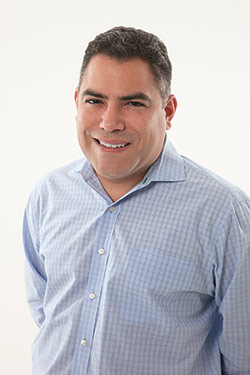 In the 1990s, I guarded my HIV-positive status like a government agent. So it was a blow to my self-esteem back then when a friend told me about a conversation he overheard. He heard another friend tell a guy I was interested in to be careful because I have HIV. That incident was a wake-up call.
In the 1990s, I guarded my HIV-positive status like a government agent. So it was a blow to my self-esteem back then when a friend told me about a conversation he overheard. He heard another friend tell a guy I was interested in to be careful because I have HIV. That incident was a wake-up call.
I confronted the friend who betrayed my confidence. He apologized and we tried to move forward in the friendship, but it was never the same. He couldn’t grasp the size of his error. I couldn’t find a way to get him to understand. Not only did I find the strength to confront a friend, but I also eventually found the strength to end a friendship.
HIV stigma—and the discrimination that often results from those negative and unfair beliefs—challenges all of us living with the virus to find the strength to live our lives with dignity and hope. The good news is that we all can strive to find that strength.
The story of Antonio Muñoz is an excellent example. After being fired from his job at a hotel, he filed an HIV discrimination lawsuit against his former employer. A jury awarded him $500,000 as a result. His story is exemplary, but he’s far from being the only person to succeed against stigma.
Click here to read how Muñoz, Greg Daniels, Sarah Franke-Bowling and others fought back against illegal HIV discrimination. You can also review major milestones in the struggle against such discrimination and get tips on how to file your own lawsuit.
Although there are many ways to combat discrimination that results from stigma, to stem stigma itself seems more elusive. Much of the public remains uncomfortable with HIV-positive people, despite decades of education efforts. Some advocates even argue that stigma is worse today than ever.
Stigma messes with our heads and hearts, but it can harm much more than our health. Taken too far, stigma can sometimes cause us to lose our income, housing, family and friends. Click here to read how each of us can help fight the flames of HIV stigma.
Despite persistent stigma and discrimination, much has changed in the treatment landcape over the years. I’m grateful, but I’m not above asking, “What have you done for me lately?” If I have to stay on treatment indefinitely (at least until there’s a cure!), I’d like to believe better medications are on the horizon.
Tim Horn, the former AIDSmeds editor-in-chief and the new HIV project director of the Treatment Action Group, answers our questions on the HIV treatment pipeline and other treatment concerns. Click here for more.
By the way, that friend I confronted, I saw him again years later. He told me he had finally grasped the size of his error. Know hope.
Advertisement
Advertisement
Advertisement






Comments
Comments